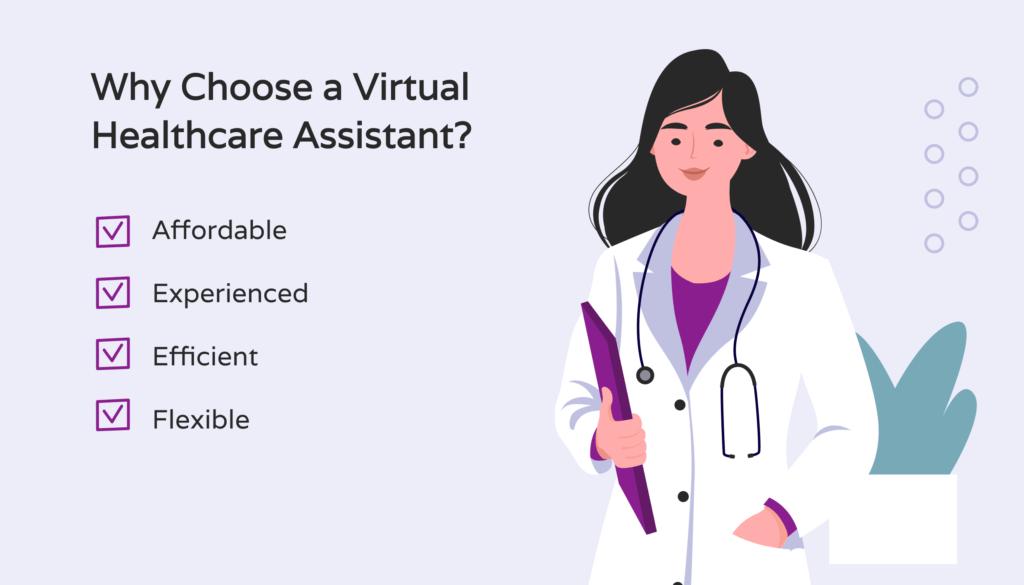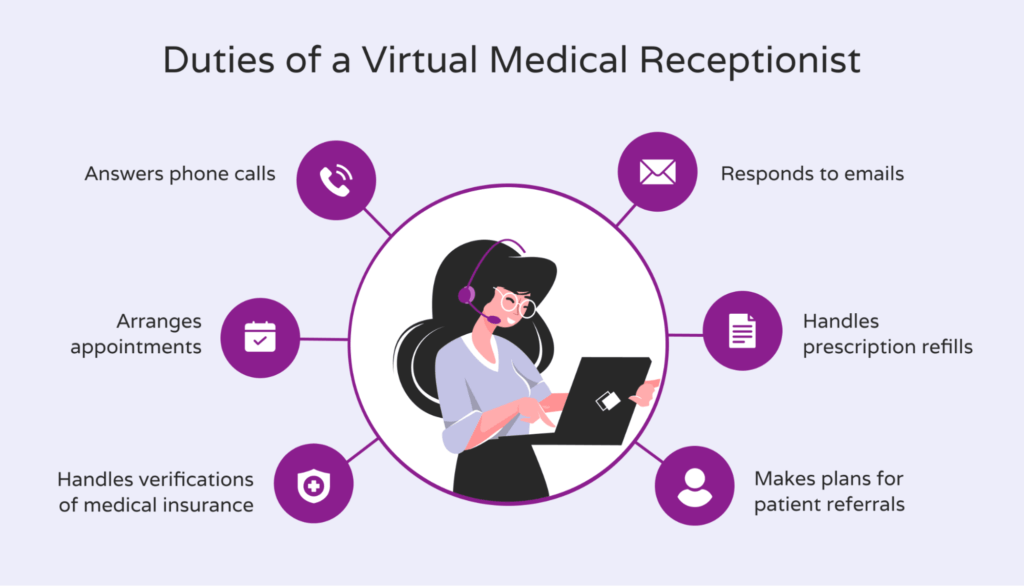When a patient enters your medical office, first impressions matter — a friendly, experienced team can help make your patients feel welcome and comfortable.
A medical front office assistant could be a valuable addition to your workplace. These workers perform a range of clerical duties and can support the medical receptionist.
In the US, there are around 611,200 medical office assistants. If you need help managing the day-to-day running of the office, this could be the solution you've been looking for.
To make the decision easier, we've put together the following article. We'll give you a rundown of how a medical front office assistant can support your practice.
Then, we'll explain why a remote assistant could be the right choice.
What is a medical front office assistant?
A medical front office assistant is often the first person a patient sees when they enter the building — they’re also often called medical or clinical receptionists. They sit behind the front desk and greet patients in a friendly manner.
These workers answer the phone and book appointments. They can manage a multi-line phone system and direct calls to healthcare professionals.
Medical front office assistants make phone calls and send texts to remind patients of upcoming appointments.
These office workers are responsible for a range of general administrative duties. They support the office team with filing, printing, word processing, and data entry.
Medical front office assistants order supplies and check patient details when they arrive.
They can work full-time, part-time, or on a temporary basis.
If you need general office assistance, there's an alternative to a new, in-person employee.
A virtual administrative assistant from Hello Rache is a good choice. Our experienced team can help with any office tasks at a fraction of the cost. Click here to learn more.
What skills and education does a medical front office assistant need?
If someone wants to work as a medical front office assistant, they should have good organizational skills, attention to detail, and problem-solving skills.
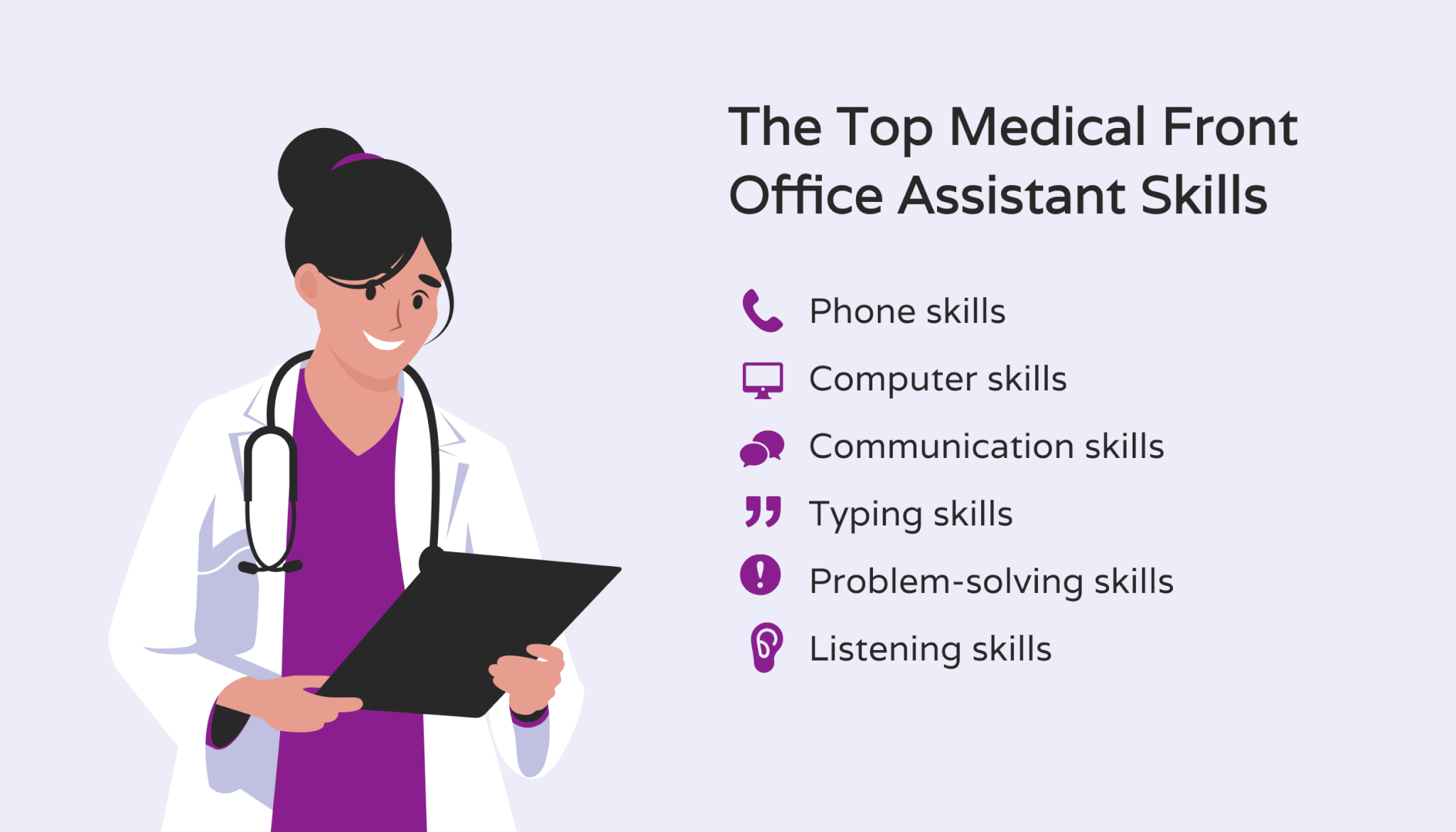
They'll be dealing with patients, so excellent communication skills, phone skills, and listening skills are essential.
Office workers need computer skills and should type quickly and accurately. The right person will be confident using common programs such as Microsoft Office and Google Workspace, plus specialized medical software.
A successful medical front office assistant will know how to use office equipment. This includes fax machines, printers, scanners, and office stationery.
They should understand basic medical terminology and know how to maintain confidentiality.
For someone with the right skills and attributes, the role could be an entry-level position. However, there are technical courses for those who want to improve their skills.
Experience in medical office support, customer service, or healthcare will be an advantage.
How much does a medical front office assistant make?
If you're thinking of hiring an in-person medical front office assistant, your budget may be on your mind.
The average salary is $39,680 per year or $19.08 per hour. This rate can vary depending on location and experience. For example, the highest paying area is the District of Columbia, where the average annual salary is $47,880.
Washington follows this with an average salary of $47,170 per year and California at $46,400 per year.
For those in Montana, the pay is toward the lower end of the scale. The average annual wage is $35,420. In Florida, it's $35,800 per year, and in Texas, it's $36,390.
Physicians are the most common employers of medical office assistants, followed by hospitals and dental clinics.
Compare these figures to a virtual healthcare assistant, and you’ll see a wide gap (especially with some outsourcing providers). Hello Rache has a flat rate price of just $9.50 an hour. There's no overtime or contracts, and you can cancel the virtual assistant service without notice.
How can a medical front office assistant help you?
Are you trying to manage a busy office environment? A medical front office assistant can support your practice.
Here are eight ways you can utilize these office team members.
1. Answering queries
Both new and existing patients will expect their queries to be answered quickly and professionally. A medical front office assistant can help by staying connected to patients.
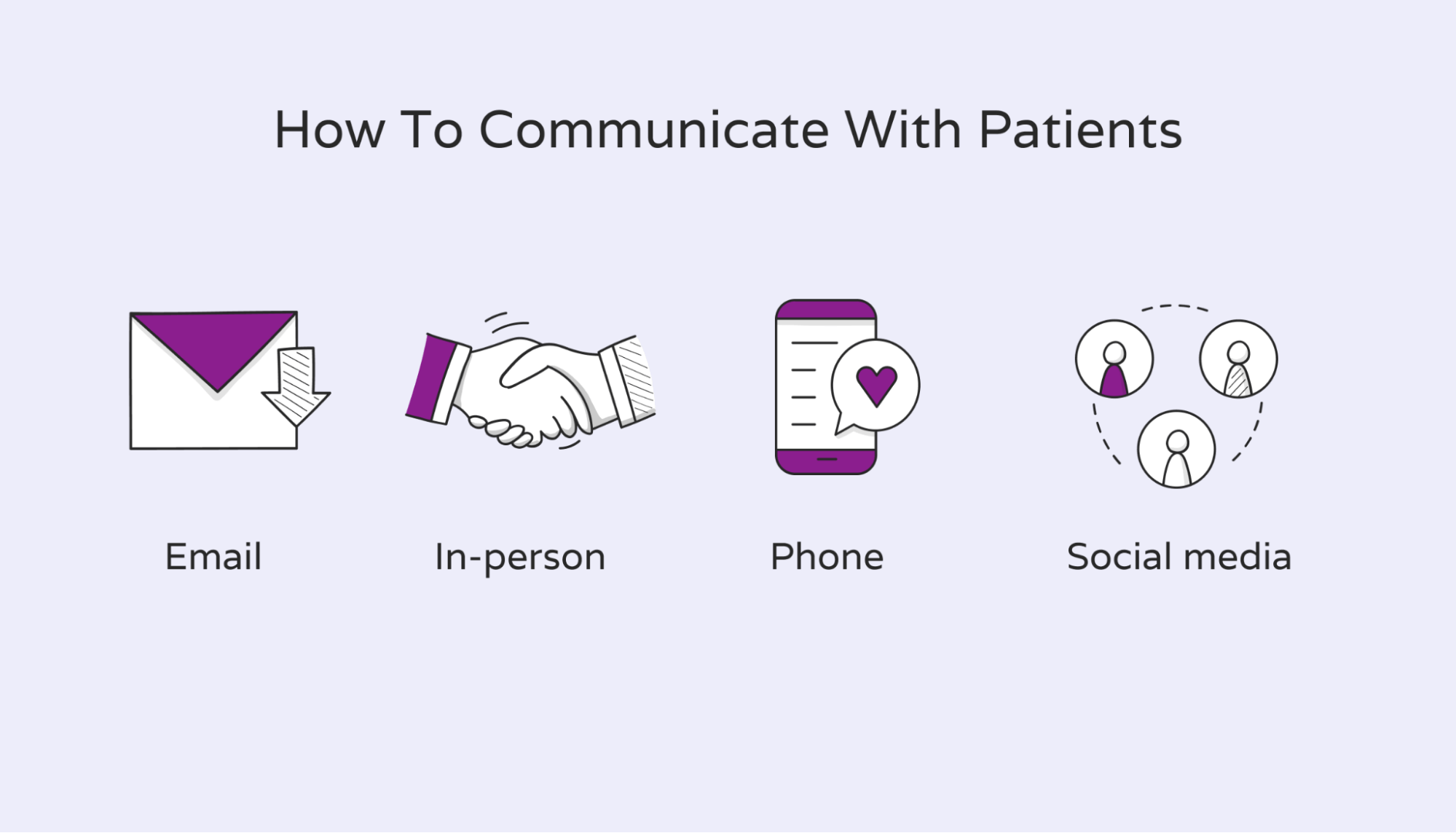
One of the main duties is phone communication. They'll answer phones and respond to any questions patients may have. For example, they may want to know about appointment availability, test results, physician specialties, or opening hours.
If they're unsure, the medical front office assistant will take a message.
There will be in-person communication, as patients may have questions before or after their appointments.
Plus, in this digital world, technology will play a role. Patients may ask questions via email or social media. This office team member may even be responsible for updating social media pages with relevant clinic news.
2. Performing data entry
Accurate patient records are important in any medical setting. Healthcare providers rely on electronic health records (EHR) and medical office software.
To make sure the information is up-to-date, data entry may be part of the medical front office assistant's job description.
They'll use their administrative knowledge to update patient information, including contact details and health insurance.
Basic bookkeeping tasks can also be done. For example, they can input invoice details, payments, and receipts.
If you're still using traditional paperwork, the front office assistant can transfer this to your medical software.
There are strict rules about how personal data can be stored and used. An experienced team member will know how to meet these standards.
3. Scheduling appointments
The medical office assistant will schedule appointments. Your appointment schedule can be full, so it's important this task is done correctly.
Patients may book appointments over the phone, in person, or online. This team member will need to manage calendars and upcoming absences. For example, the physician may have a vacation booked and need two weeks off.
Patient appointments can run at different lengths, and there can be options for short or long consults. They'll use their medical knowledge to determine which appointment type the patient may need.
Medical front office assistants will manage canceled and postponed appointments. If someone cancels or a doctor is away, they'll need to reschedule.
These workers can call patients to remind them of upcoming appointments.
4. Greeting visitors
When visitors walk through the door, your front office team will be there to greet them. They'll take their information and make sure their personal details are up to date.
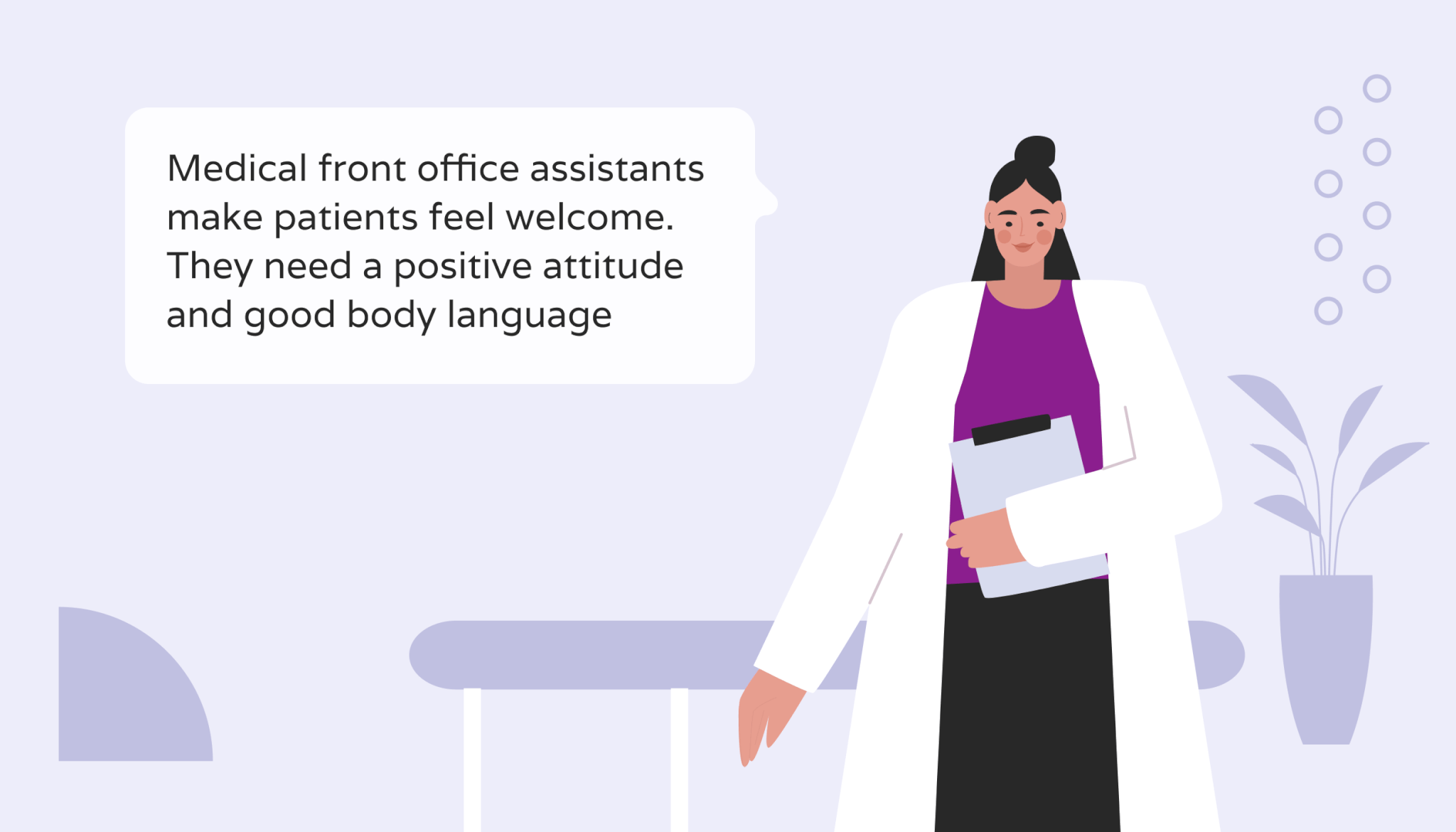
The medical front office assistant will check the appointment time before asking the patient to take a seat.
They'll notify the physician that their patient has arrived and answer any questions.
Sometimes, the practice can be busy, and visitors may need to wait in a queue. This can cause patients to become frustrated, so front office staff need to know how to react with compassion while working efficiently.
If the health professionals are experiencing delays, this worker will explain to the patient that there may be a longer wait time.
5. Keeping a tidy workspace
The front office is open to visitors, so it should be visually appealing. The medical front office assistant will support the team by maintaining the front work area.
They'll make sure the waiting room is comfortable for visitors. For example, they may remove garbage and hazards, clean spills, and restock any complimentary beverages. They'll keep the workspace hygienic and sanitize as required.
The office worker will also keep the front desk clean and tidy. They'll ensure that paperwork is organized neatly and that no confidential information is displayed.
If they notice any maintenance issues, they'll get in contact with the right person for repairs.
6. Assisting with general administration
While assisting patients and updating medical records will be a priority, there are other office duties these workers can help you with.
There will be a regular to-do list, but daily tasks can vary. Your team can check in with the office manager to find out what needs to be done.
Front office workers may help with printing, scanning, and filing documents. There may be transcription to complete, such as typing letters or referrals.
Depending on the size of the office, these team members may keep the kitchen stocked with tea, coffee, and snacks.
7. Accepting payments and verifying medical insurance
Before patients leave, they'll come back to the front desk. The medical front office assistant must ensure their accounts are balanced.
If payments are due on the day, they can process cash or card payments. They'll count the change and give each patient a receipt.
In a general clinic most patients have medical insurance, so they also need to verify their insurance and process the insurance request.
For those who have longer payment terms, front desk team members will generate an invoice.
When payments are made, the details need to be recorded and matched to the patient file.
Any cash needs to be stored securely and counted at the end of the shift. Healthcare office assistants need to make sure credit card details and insurance information are processed securely.
Benefits of choosing a virtual assistant
Do you think a medical front office assistant can fill the gaps in your workplace? A virtual healthcare assistant performs a similar role but from a remote location.
They can do many of the same medical administration tasks, such as answering phones, booking appointments, and data entry.
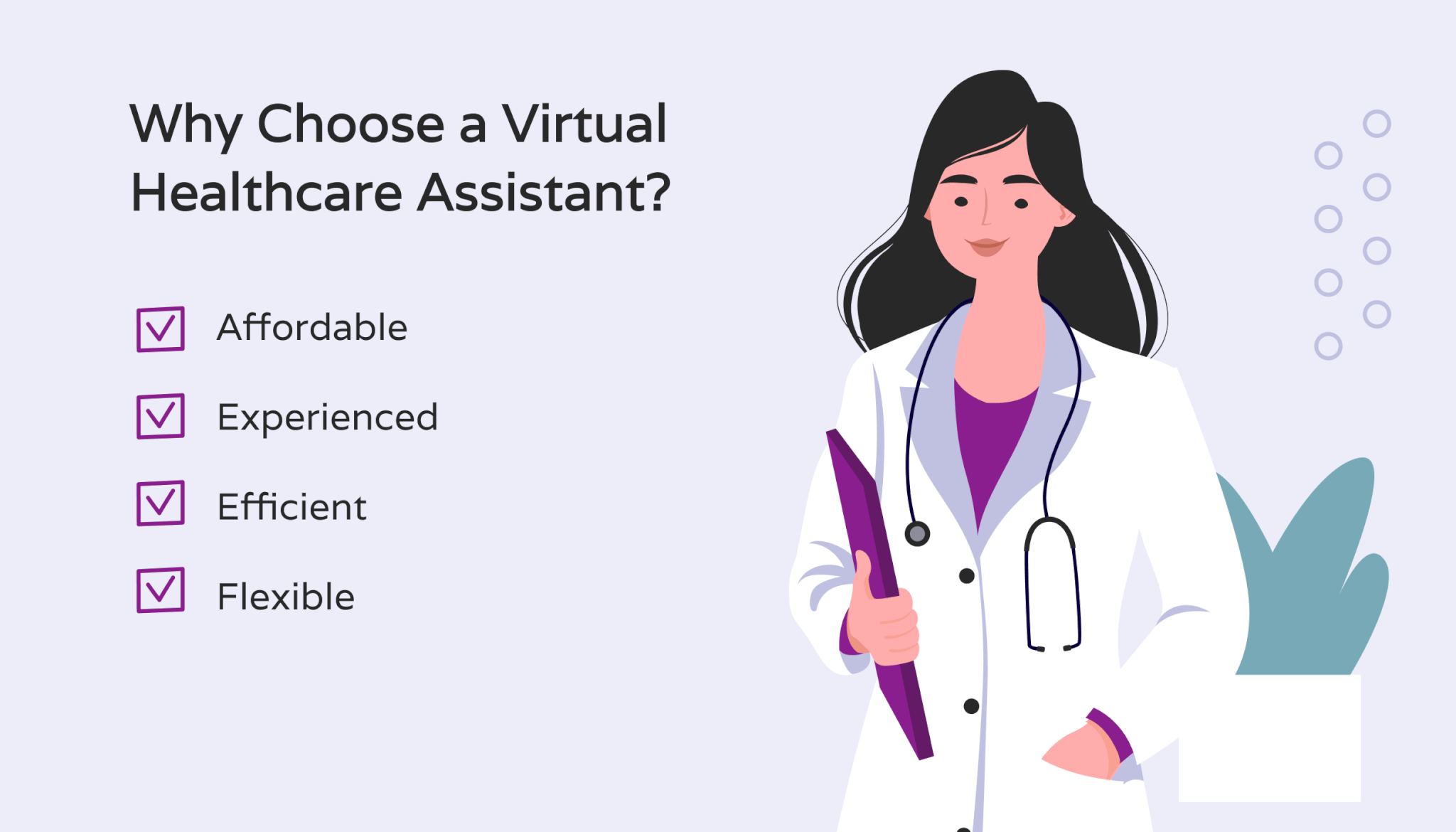
Plus, there are a few benefits you'll get when you go virtual. Let's take a look at a few reasons why a virtual assistant could be right for you.
Save money
We've already given you a rundown of the average medical front office assistant salary. If you choose a virtual assistant from Hello Rache, it'll cost you far less than a new in-office employee.
You also won't have to spend money advertising the position, interviewing, or onboarding a team member. There are no contracts, and you'll only pay $9.50 per hour. It's a flat rate, so you won't have to worry about overtime.
When a full-time employee can cost around $19 an hour, you’re paying less than half of what you’d normally pay for a receptionist.
Reduce the workload
If you already have a receptionist, a virtual healthcare assistant can ease the administrative burden.
There are a number of ways they can support your existing team. For example, the virtual assistant can send appointment reminders or answer calls for a busy phone line.
Repetitive tasks such as data entry can also be assigned to your virtual team member.
If you sign up with Hello Rache, you can use the same person. They’ll get to know your medical practice and unique processes.
When you reduce the workload, your existing employees will be happier and have a better work-life balance.
Get access to experienced team members
Even though your assistant is working remotely, they'll still have industry knowledge. The Hello Rache team is experienced, trained, and HIPAA compliant.
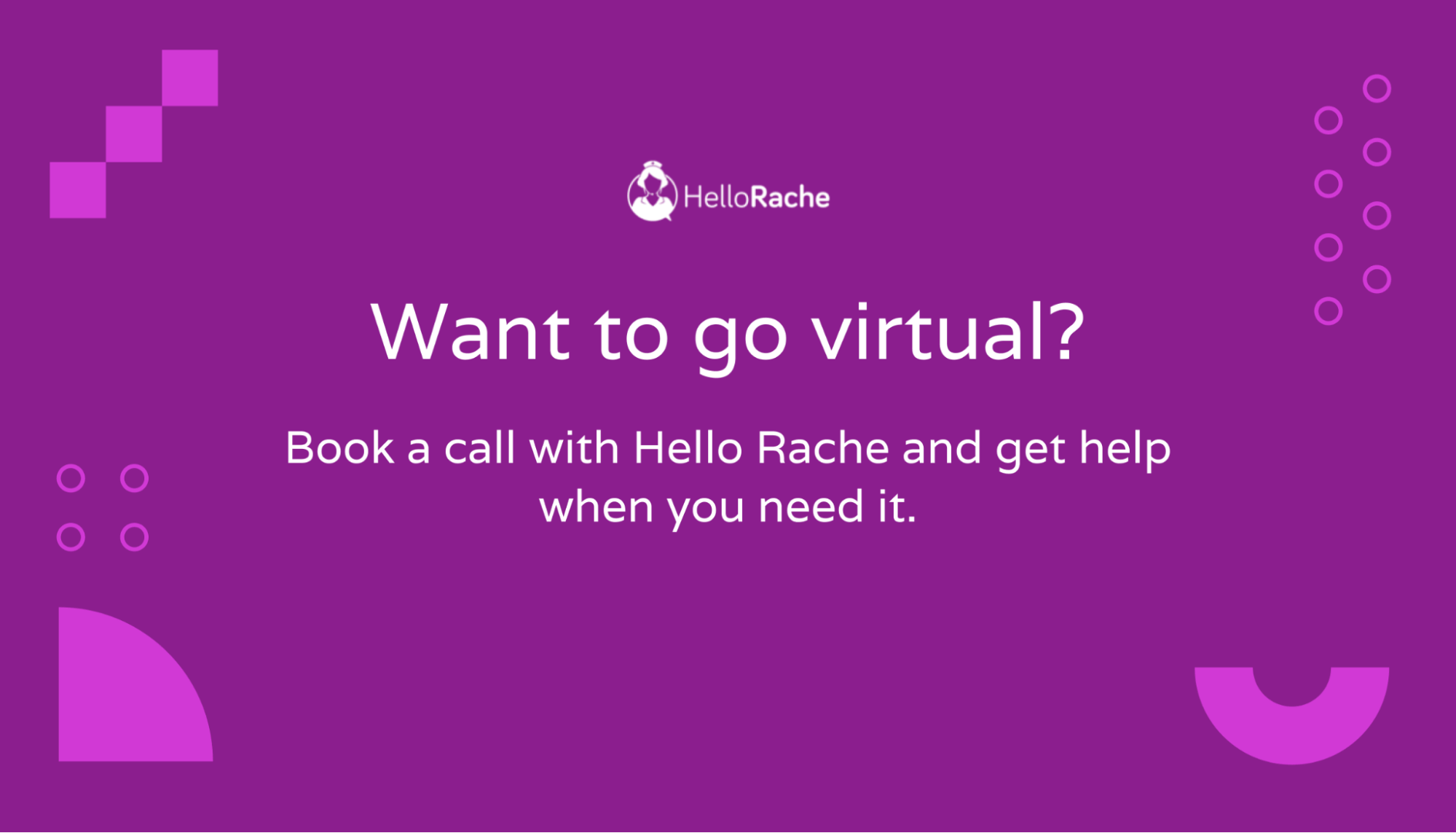
They understand medical terminology, and most of them have a background in healthcare. For example, some virtual assistants have worked in nursing, while others have experience as medical assistants.
Finding new team members with office skills and healthcare experience is not always easy. You'll have even fewer options if you're in a rural location.
Choosing a remote worker can give you access to an efficient, experienced, and professional office support person.
Have a flexible workplace
With the help of a virtual assistant, you can have a flexible workplace. You can get support when you need it, giving your existing team more options for time off.
For example, you may only need someone to fill this administrative role while your receptionist is on maternity leave. Or, your in-person office assistant may need a day off each week to study.
If members of your team are away due to illness, help may be needed at short notice.
A virtual assistant gives you options. You'll get a more positive work environment when your staff have the flexibility they need to manage their home and work commitments.
Looking for a medical front office assistant
Patient care starts with your front office. Your team will be there to greet patients and answer any questions before their appointments.
A medical front office assistant can be a valuable member of your team. They’ll assist patients, schedule appointments, and process payments.
These workers will keep a tidy workspace, perform data entry, and be responsible for general administrative tasks.
Remember, your medical office assistant doesn’t need to be there in person.
A healthcare virtual assistant will save you money and reduce your workload. You’ll get an experienced team member with the flexibility you need.
Learn more about our healthcare virtual administrative assistants or visit our blog for more articles.

